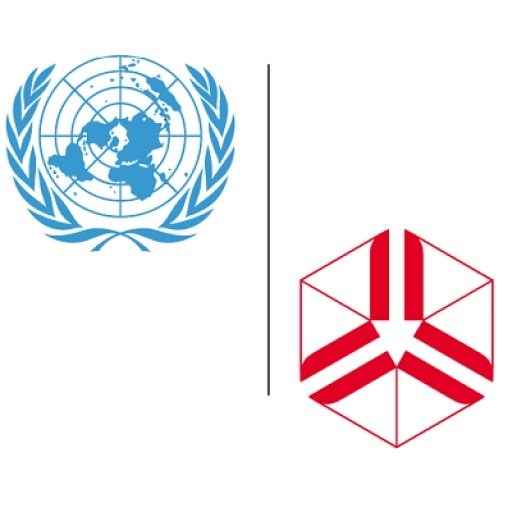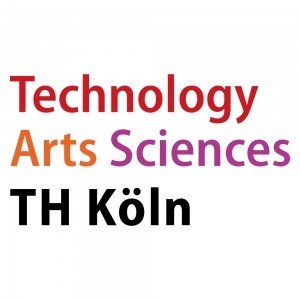Photos of university / #heriotwattuni
Water and Environmental Management at Heriot-Watt University offers a comprehensive and interdisciplinary approach to understanding and addressing the complex challenges related to water resources and environmental sustainability. This programme is designed to equip students with the theoretical knowledge and practical skills necessary to manage water systems effectively, ensure environmental protection, and promote sustainable development in a rapidly changing world. Through a blend of science, engineering, policy, and management modules, students gain a holistic understanding of water cycle processes, water quality assessment, and the socio-economic factors influencing water usage.
The curriculum emphasizes the importance of sustainable water management practices, highlighting the impact of human activity on water resources and ecosystems. Students explore topics such as hydrology, water treatment, environmental legislation, and climate change adaptation strategies. The programme fosters critical thinking and problem-solving abilities, encouraging students to undertake real-world projects, internships, and case studies that relate theory to practice. Hands-on experience is integral to the programme, with laboratory work, field trips, and software training complementing classroom learning.
Career prospects for graduates of Water and Environmental Management are diverse, spanning roles in environmental consultancy, water utilities, government agencies, NGOs, and international organizations. The programme prepares students to contribute effectively to policy development, environmental management, and sustainable engineering solutions. It also provides a solid foundation for further postgraduate studies and research in water resources, environmental sciences, and related fields. Heriot-Watt University's strong links with industry and research institutions ensure that students have opportunities for networking, professional development, and staying abreast of the latest technological advances and environmental policies.
Overall, this degree programme aims to develop environmentally conscious professionals who are equipped to tackle global water challenges while promoting sustainable and resilient communities. The university’s supportive learning environment, combined with its emphasis on practical application and interdisciplinary knowledge, makes Water and Environmental Management an ideal choice for motivated students committed to making a positive impact on the planet.
Water and Environmental Management at Heriot-Watt University offers a comprehensive and multidisciplinary approach to understanding the critical issues surrounding water resources and environmental sustainability. This program is designed to equip students with the technical knowledge, practical skills, and analytical capabilities necessary to address complex challenges related to water supply, quality, and management, as well as broader environmental concerns. Throughout the course, students explore topics such as hydrology, water treatment processes, environmental impact assessment, pollution control, and sustainable development strategies. The curriculum integrates theoretical foundations with practical applications, including laboratory work, field studies, and project-based learning, to prepare graduates for careers in environmental consultancy, water resource management, policy development, and engineering sectors. The program emphasizes the importance of a holistic understanding of water and environmental systems, encouraging students to develop innovative solutions to mitigate pollution, adapt to climate change, and promote sustainable use of natural resources. Students also gain valuable experience working with industry-standard tools and technologies, enhancing their employability in a competitive job market. By combining scientific principles with real-world issues, the Water and Environmental Management program at Heriot-Watt University aims to produce graduates who are capable of making meaningful contributions to environmental protection and sustainable development on a local, national, and global scale.
Entry requirements typically include a strong academic background in science or engineering subjects, such as A-levels or equivalent qualifications with good grades. Specifically, applicants often need to demonstrate proficiency in mathematics and some science disciplines, like physics or chemistry. For international students, acceptable English language proficiency tests include IELTS with an overall score of at least 6.0, and no component less than 5.5, or equivalents such as TOEFL with a minimum score of 78. Prior relevant work or research experience in water or environmental management can be an advantage but is not mandatory. The programme is designed to attract students from diverse academic backgrounds, provided they meet the minimum entry standards. Applicants are usually required to submit academic transcripts, a personal statement outlining their interest and motivation for studying water and environmental management, and letters of recommendation. There may also be an interview process, particularly for applicants who do not have a traditional science or engineering background, to assess their understanding of the field and motivation for choosing this programme. Additionally, the programme encourages applications from students committed to sustainable development and environmental protection. Mature students or those with relevant professional experience may be considered on a case-by-case basis. Supporting documents should be sent through the university application portal, and all applicants are advised to check specific entry criteria and deadlines on the Heriot-Watt University official website for the most current information. The programme aims to provide students with the technical skills, scientific knowledge, and practical understanding necessary to address water and environmental issues in a global context, preparing graduates for careers in environmental consultancy, water resource management, policy development, or further research.
Want to improve your English level for admission?
Prepare for the program requirements with English Online by the British Council.
- ✔️ Flexible study schedule
- ✔️ Experienced teachers
- ✔️ Certificate upon completion
📘 Recommended for students with an IELTS level of 6.0 or below.
The Water and Environmental Management program at Heriot-Watt University offers a range of financing options to support students throughout their studies. Tuition fees for international students vary annually and are typically published on the university's official website at the beginning of each academic year. Domestic students, including UK residents, benefit from competitive fees that are also periodically updated. Many students utilize government-backed student loans and bursaries to fund their education, with eligibility criteria dependent on residency status and course level. Heriot-Watt University participates in the UK Student Loans Company schemes, enabling eligible students to access loans to cover tuition costs and living expenses. In addition, the university provides a variety of scholarships and bursaries aimed at both domestic and international students. These financial awards are often merit-based, need-based, or targeted toward specific demographics, such as Scottish or EU students. Scholarships may cover partial or full tuition fees and sometimes include additional funds for research or living costs. Part-time work opportunities are available on campus and nearby, allowing students to supplement their income while balancing their studies. External funding sources, such as research grants and sponsorships from environmental organizations and government agencies, are also accessible for students involved in research projects or internships related to water and environmental management. The university offers guidance and support services to help students explore and apply for various funding options, including financial planning workshops and personalized financial advice. Overall, the program's funding landscape is designed to make water and environmental management education accessible and affordable, fostering diversity and supporting students in pursuing their academic and professional goals in the field of environmental sustainability and water resource management.
The MSc in Water and Environmental Management at Heriot-Watt University is a comprehensive postgraduate program designed to equip students with the essential knowledge and skills required to address complex issues related to water resources, environmental sustainability, and management practices. This program emphasizes interdisciplinary approaches, combining core aspects of hydrology, environmental science, and sustainable development, preparing graduates for careers in environmental consultancy, water management agencies, non-governmental organizations, and private sector industries.
Throughout the course, students engage with a wide range of topics including water quality assessment, environmental model development, climate change impacts on water resources, pollution control, and environmental legislation. The curriculum integrates theoretical foundations with practical skills, offering opportunities for hands-on experience through laboratory work, field studies, and project-based learning. This approach ensures that students are well-prepared to analyze environmental data, develop sustainable management strategies, and utilize emerging technologies.
The program also addresses current challenges such as watershed management, water policy formulation, and mitigation of environmental hazards. Students learn about integrated water resources management (IWRM) principles and their application in real-world scenarios, fostering a comprehensive understanding of the interconnectedness of ecological and societal needs. Heriot-Watt’s strong focus on sustainable development aligns with global efforts to promote environmental resilience and responsible resource use.
Students enrolled in this MSc program benefit from the university’s excellent research facilities, experienced faculty members, and strong links with industry and government organizations. The program offers both full-time and part-time modes, providing flexibility for students with various backgrounds and commitments. Graduates of the MSc in Water and Environmental Management are equipped to contribute effectively to tackling environmental challenges worldwide, making a positive impact on environmental quality and public health.
The duration of the full-time program is typically one year, while the part-time option extends over two years. Entry requirements generally include a bachelor’s degree in a related discipline such as environmental science, civil engineering, geography, or similar fields. The program emphasizes critical thinking, problem-solving skills, and innovative approaches to environmental management, ensuring students are ready to meet current and future environmental challenges. With a global perspective and practical orientation, this program prepares students for international careers addressing water and environmental issues on a local, national, and global scale.










